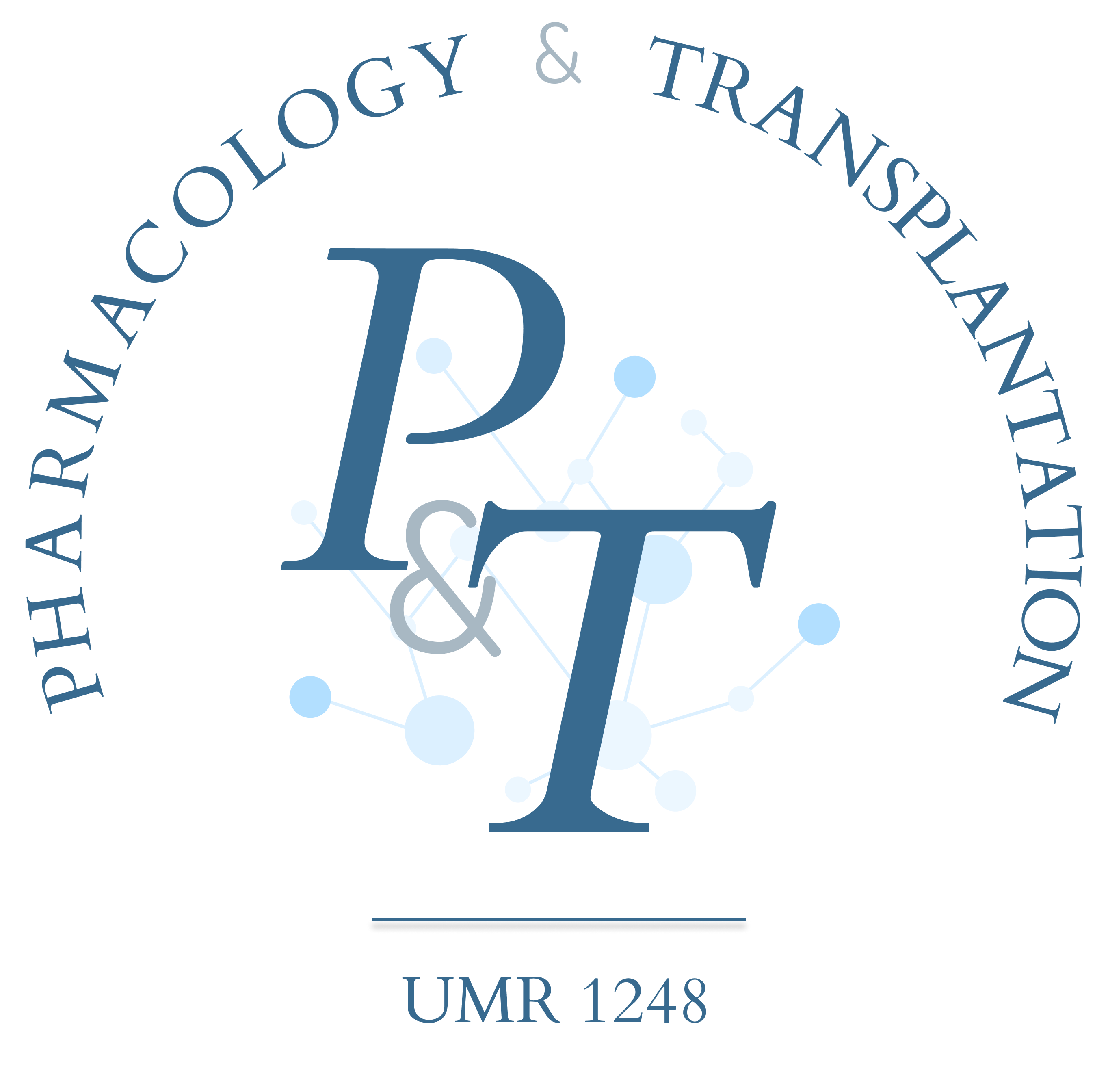Food(phytochemical)-drug interactions involving transporters in charge of drug excretion at the atomic level
Contact - Information
Gabin FABRE
Patrick TROUILLAS
UMR-1248 INSERM
CBRS – Université de Limoges
1, rue du Pr Bernard Descottes
87000 Limoges
Deadline: 30/04/2019
Documents:
- Resume
- Cover Letter
- Contact for recommandation letter(s)
Funding Source:
Pending for project/applicant acceptation by Univ. Limoges PhD School
Pharmacol Res, 2018, 133, 318-327
Pharmacol Res, 2016, 111, 471-486
Pharmacol Res, 2017 Apr;118:121-132.
Chem Comm, 2015, 51, 7713-7716
PhD Project - Computational Chemistry
Membrane transporters present in the liver and the kidney are major determinants of the elimination of a broad range of drugs. The activity of transporters can be modulated by genetic polymorphisms but also by the concomitant presence of other drugs, nutrients, endobiotics or toxins. Once present in the bloodstream after food intake, dietary phytochemicals have been shown to interact with hepatic (e.g. SLCO1B1/3, ABCG2, ABCC2, ABCC4) or renal (e.g. SLC22A6/8, ABCB1, ABCC2, ABCC4, MATE) transporters, in turn possibly modulating drug transport. Depending on their impact on the function of transporters (activation/inhibition), their presence may cause toxicity or decrease in activity of the co-administered drugs. Unlike drug-drug interactions (DDI), nutrient-drug interactions are very difficult to decipher in patients because of high inter-individual heterogeneity in food intake, of great chemical diversity of the absorbed molecules, and of possible use of herbal medicine or food supplements.
Numerous experimental studies on nutrient-drug interactions have been conducted so far, showing that phytochemicals can modulate the activity/expression of transporters, thus influencing the systemic clearance of drugs. However, these studies were generally not representative of physiological situations, in which the circulating concentrations of phytochemicals and drugs are in principle lower. Moreover, many other substances (e.g., from herbal medicine) may have synergistic, additive or antagonistic effects on the same transporters. By studying a great number of circulating substances simultaneously, metabolomic studies in animals or in humans have provided complementary insights into the role of a series of phytochemicals in the elimination of drugs.
Nonetheless, in vivo studies do not unravel whether the transporters are solely responsible for the change in pharmacokinetics. Indeed, many phytochemicals are substrates/modulators of drug metabolizing enzymes too, which contribute to the elimination process. The International Transporter Consortium (ITC) has proposed an integrated approach (in vitro, in vivo, in silico) to assess transporter-mediated DDI. A similar approach should be conducted for nutrient-drug interactions, even if they are more complex.
Based on in silico models that have been developed in our INSERM research unit (U1248) over the past years, the applicant will evaluate the interaction between dietary phytochemicals and drug transporters. Focus will be given to: SLC and ABC transporters present in the liver and the kidneys (e.g., SLCO1B1/3, SLC22A6/8, ABCB1, ABCG2, ABCC1, ABCC2, ABCC4); and polyphenols, a wide class of phytochemicals known to interact with these transporters.
In the first part of the PhD thesis, prototypical polyphenols will be considered, namely curcumin, resveratrol, quercetin, or catechin derivatives, the involvement of which in nutrient-drug interactions has already been demonstrated by in vitro studies. The interactions between polyphenols and transporters will be studied by molecular docking and molecular dynamics (MD) simulations. This will enable identifying their binding sites and impact on transporter function. In a further step, combination of several phytochemicals and drugs will be introduced in the in silico models to evaluate structural impacts on transporters, in turn predicting impacts on their function. This will enable delineating the perimeter of the complex effects arising from the great diversity of food-associated nutrients.
This in silico evaluation of polyphenol-drug interactions with a set of transporters will be benchmarked against in vitro evaluations. The interaction of polyphenols with the transport of typical drugs used in organ transplantation (e.g., immunosuppressants, antivirals) will be assessed based on transport studies conducted in tubular or hepatic cells, transfected to specifically express each of the transporters.
In the second part of the PhD thesis, the identification of the binding sites involved in nutrient-drug interactions will be automatized and extended to large series of molecules. This should be of real pharmaceutical importance, leading to the identification of food modulators (enhancers or inhibitors) responsible for modification of drug clearance. The automatized procedure might be later transferred to the InSiliBio start-up company recently launched as a spin-off of UMR12048, to propose on-demand in silico evaluation to food and pharmaceutical industries.









